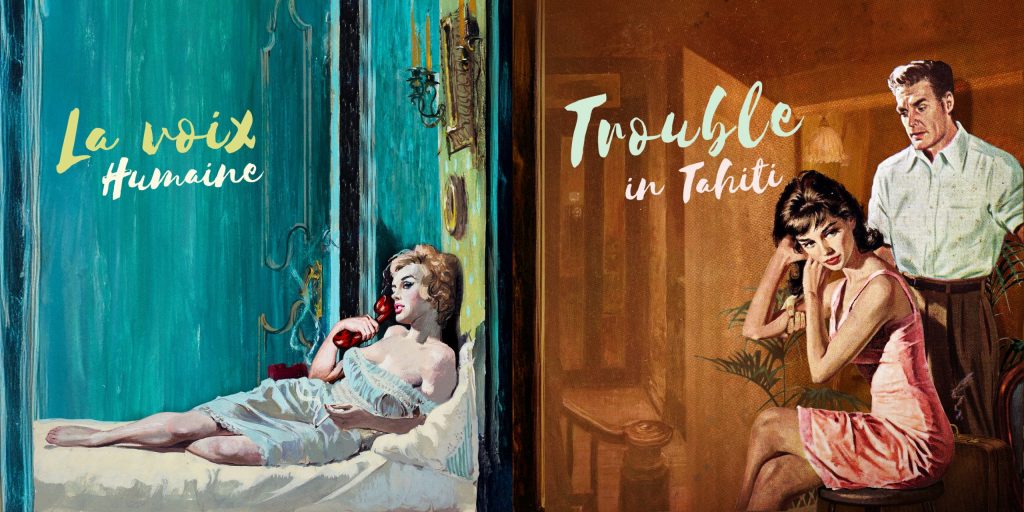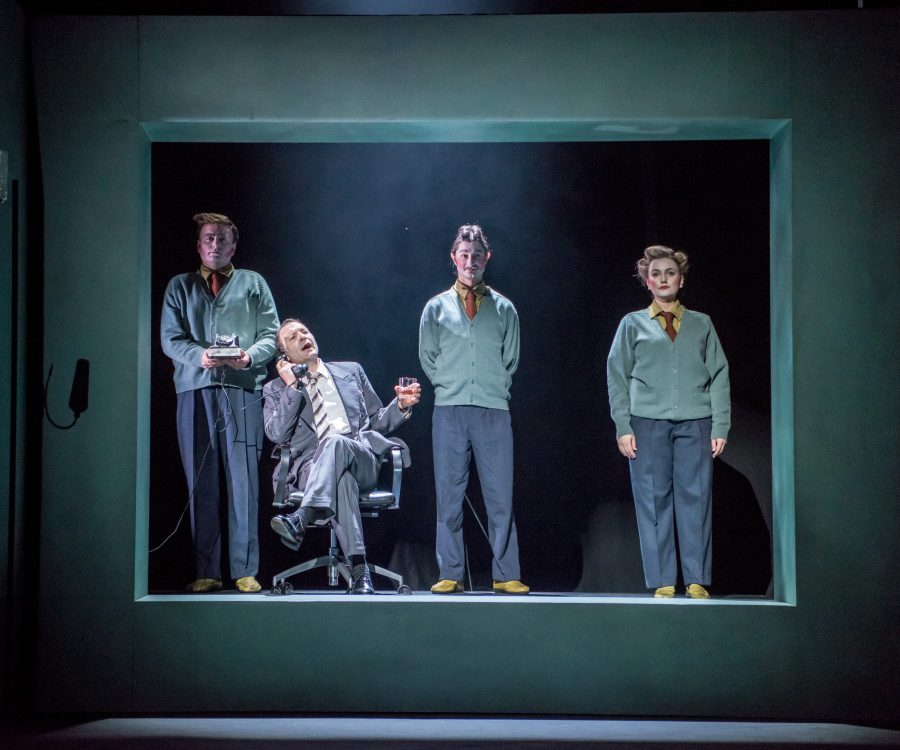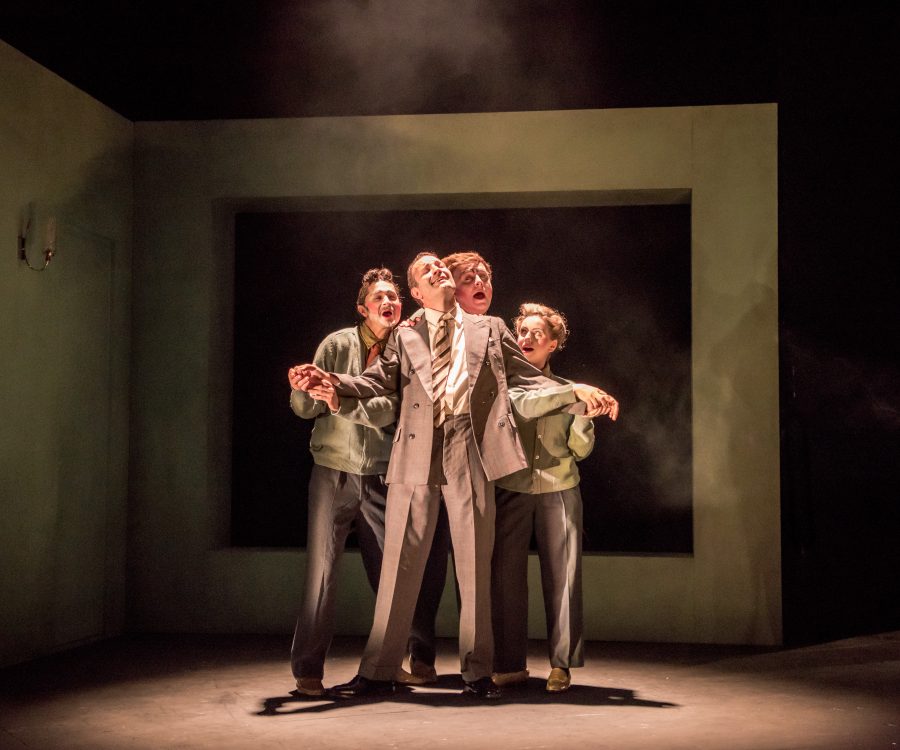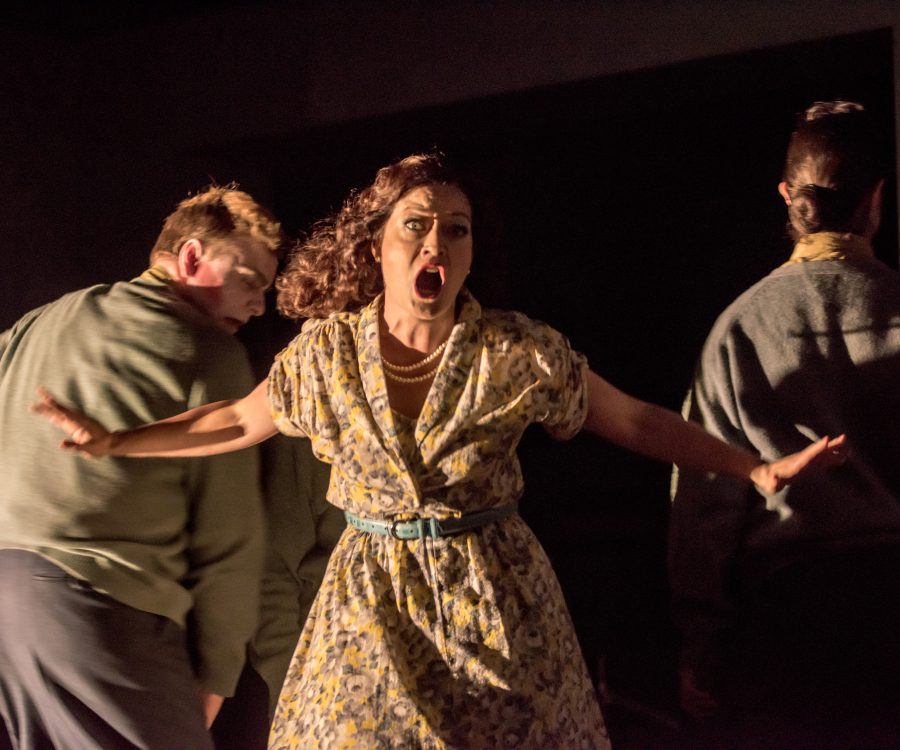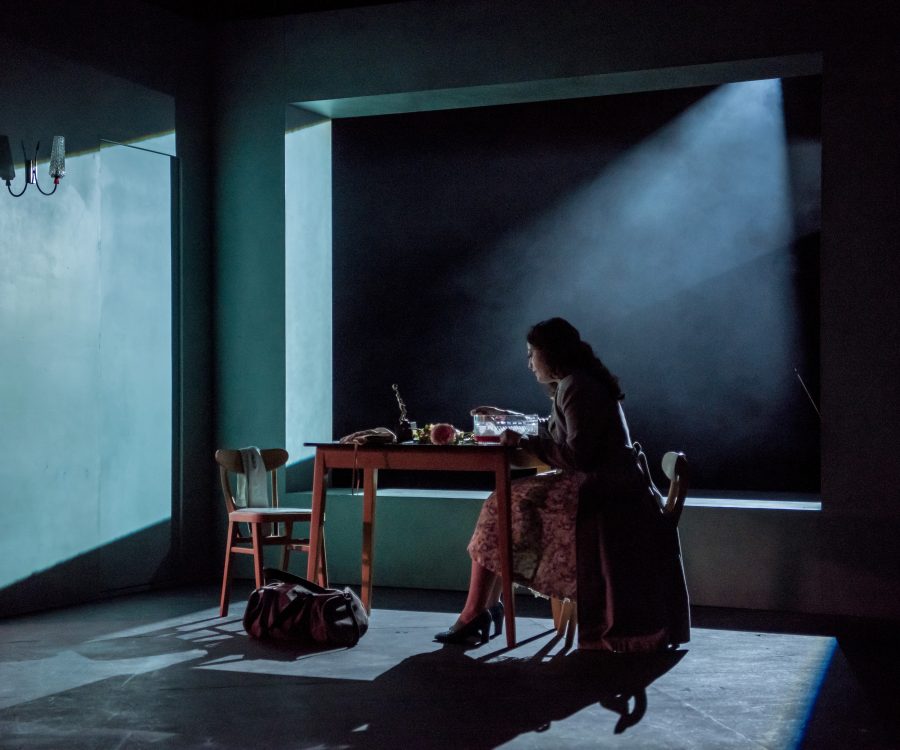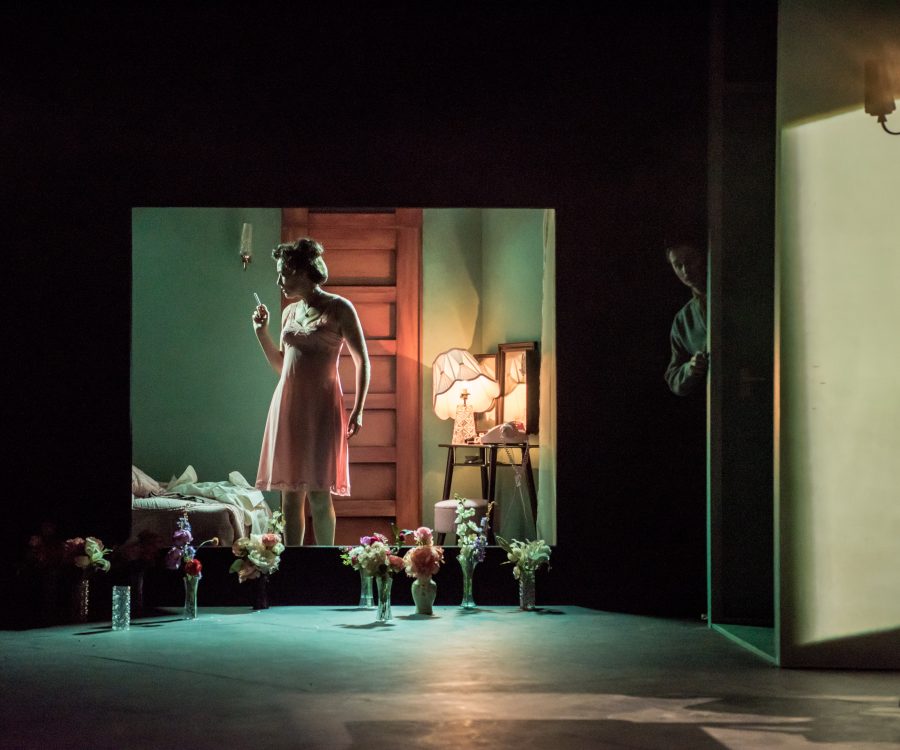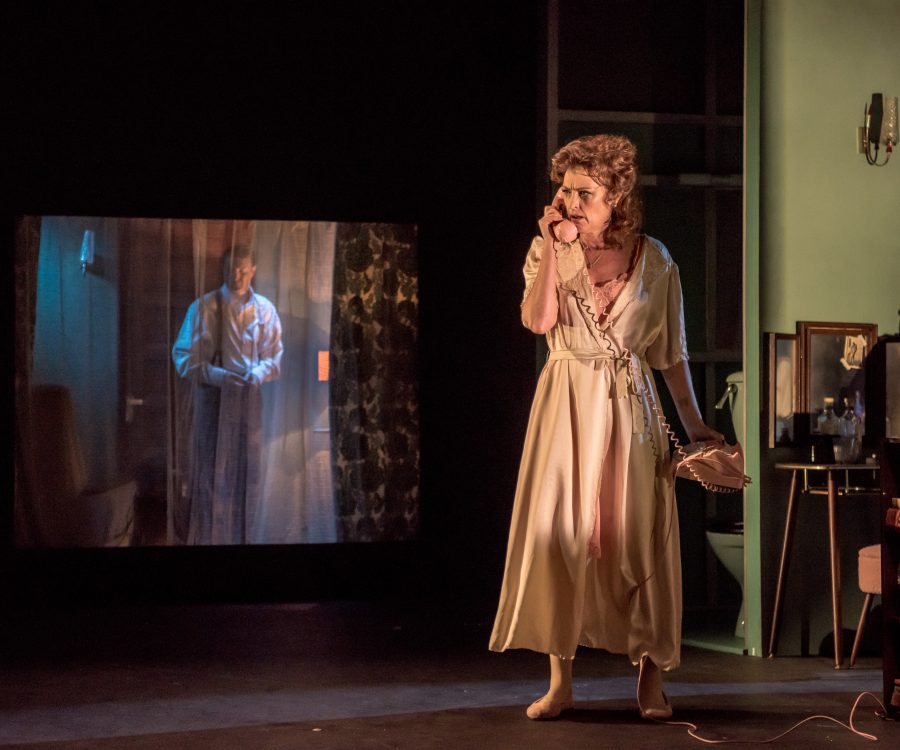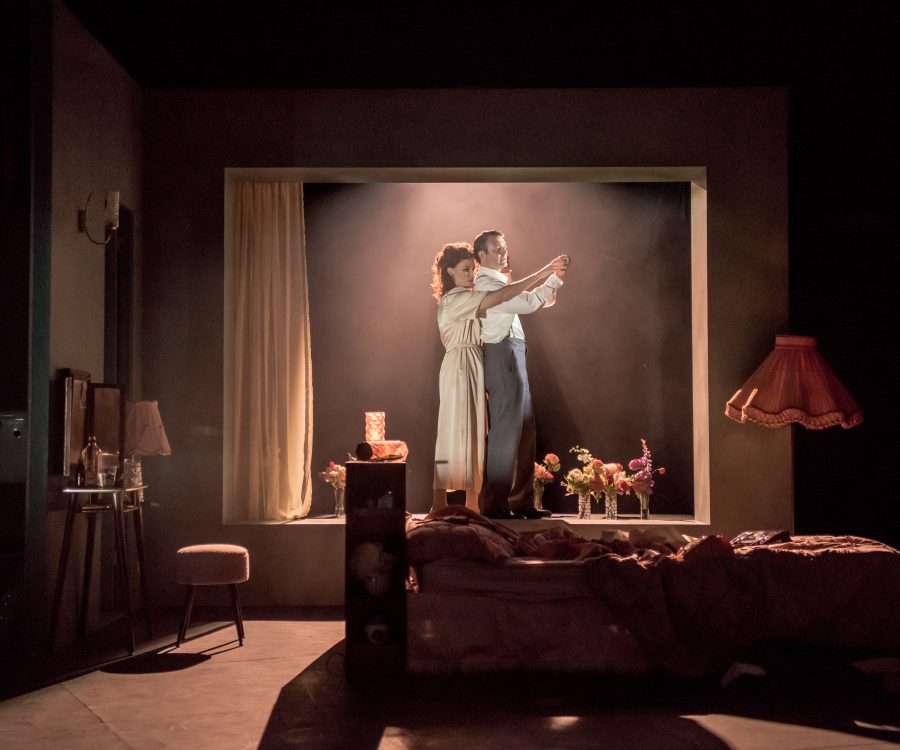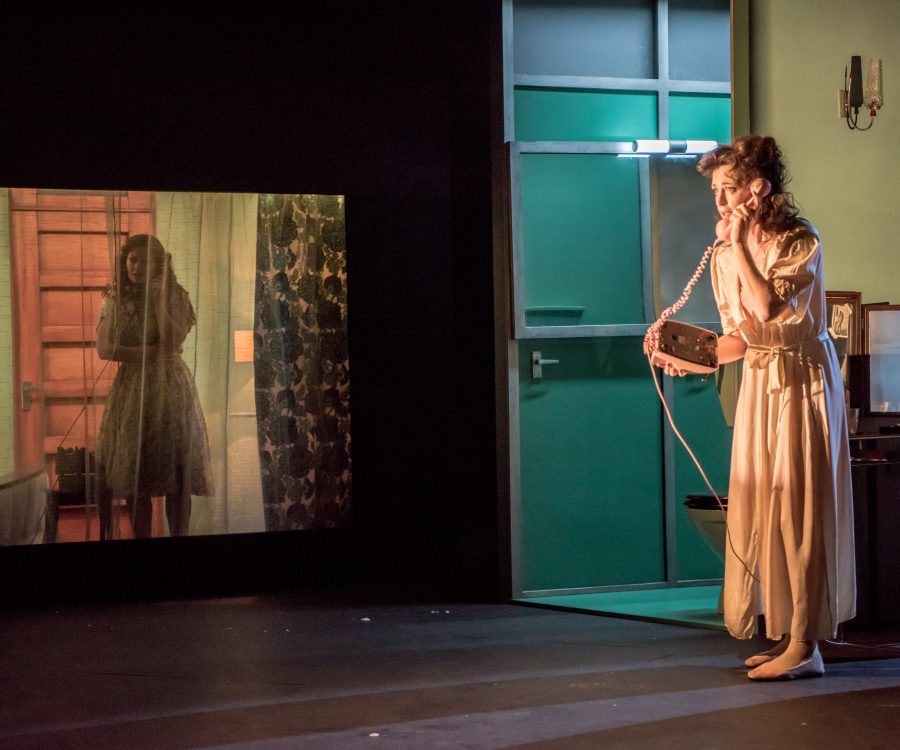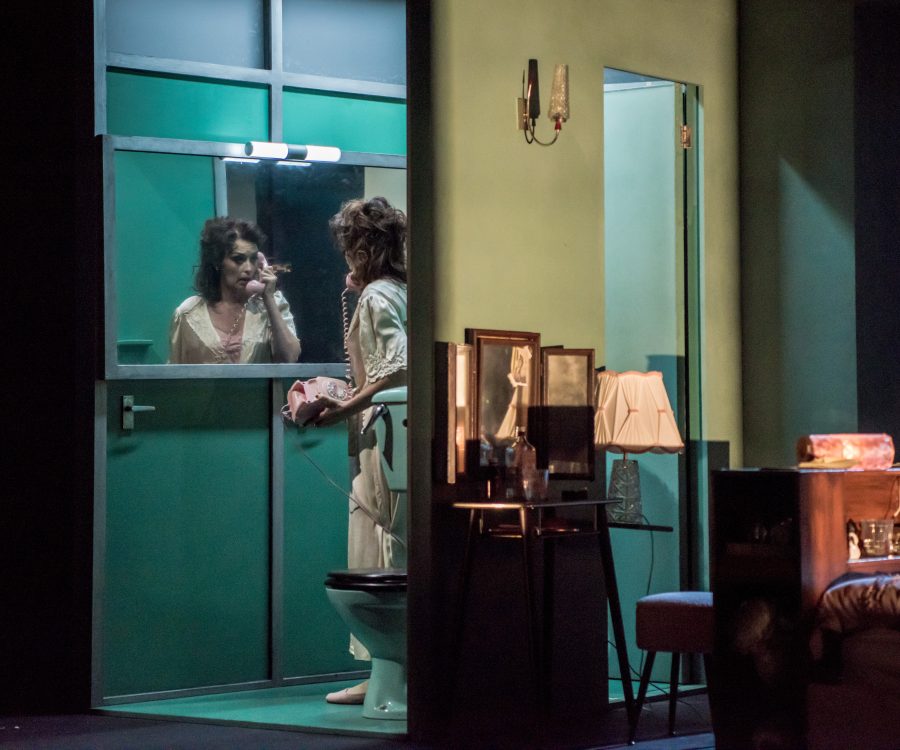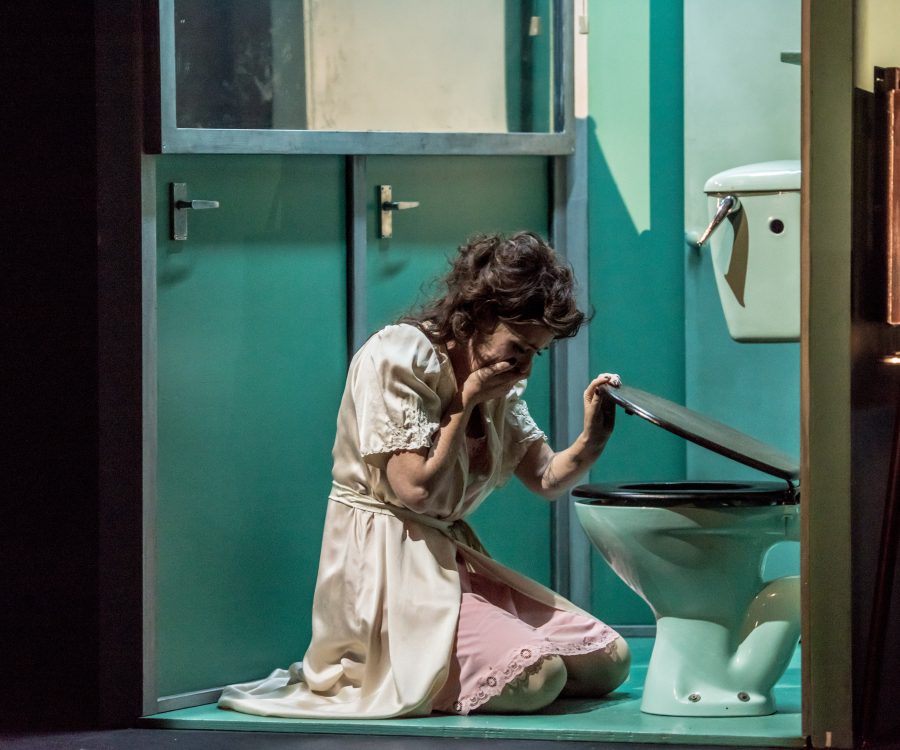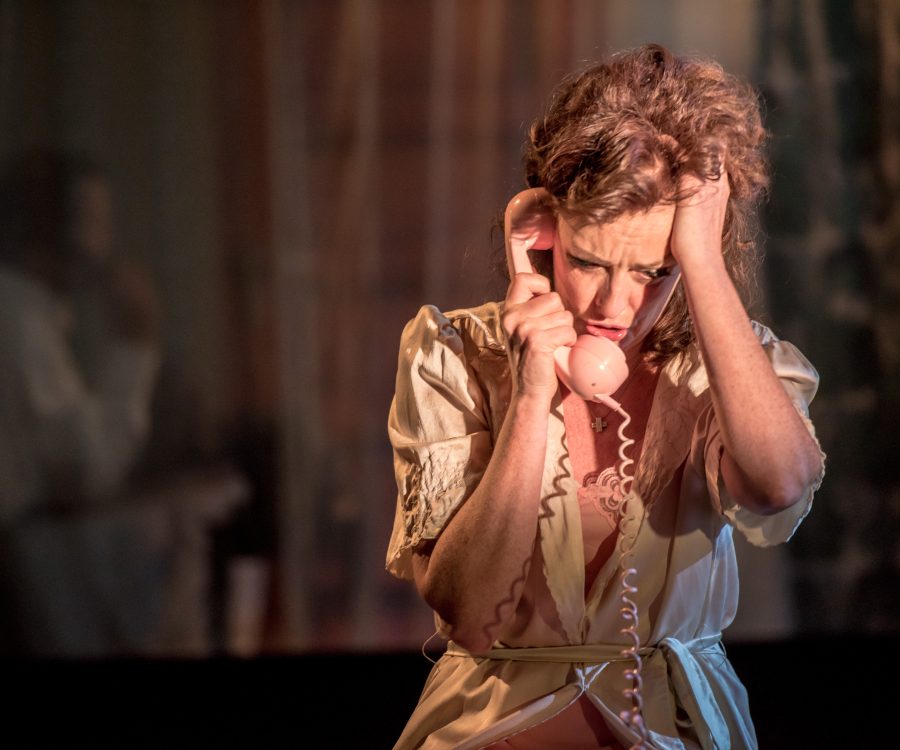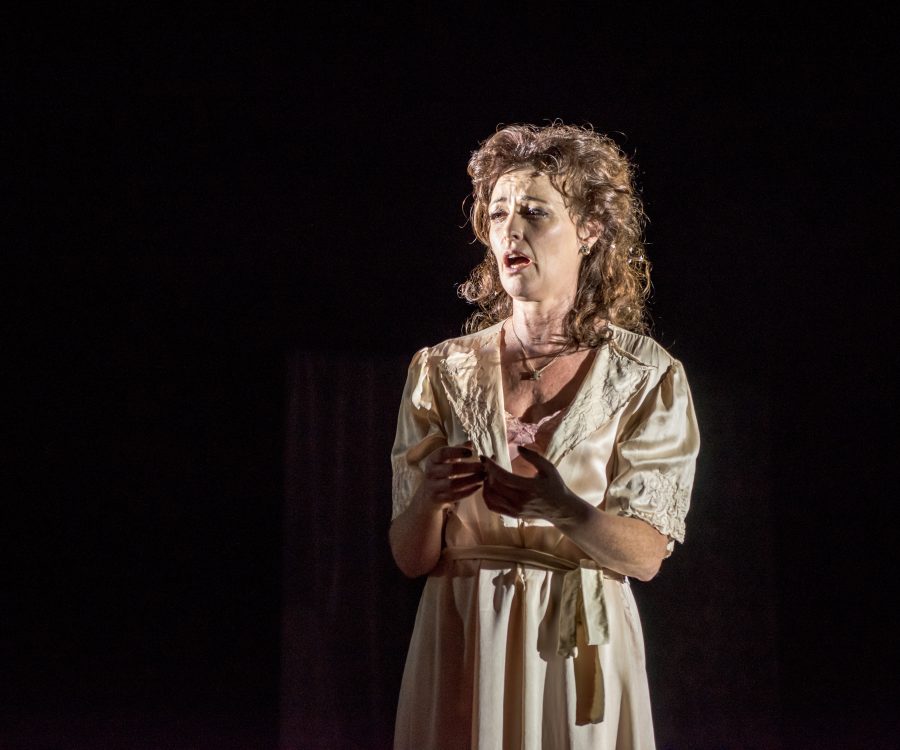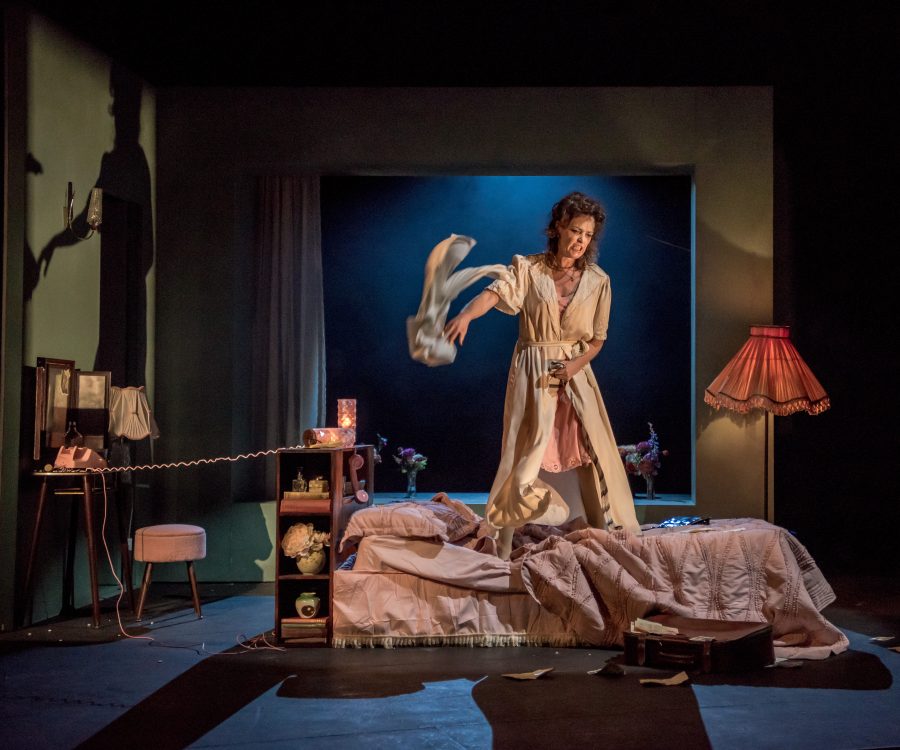A Buxton International Festival and Norwich Theatre Production, featuring the Buxton International Festival Orchestra.
Enjoy a captivating double bill of opera, which pairs Bernstein’s Trouble in Tahiti with Poulenc’s La voix humaine. Both works delve into the human psyche, examining the complexities of love, isolation and the yearning for connection.
In Trouble in Tahiti, Bernstein paints a portrait of suburban discontent as we follow Dinah and Sam, a young couple who seem to have it all. Their immaculate home, gleaming kitchen, and modern conveniences suggest the American dream. Yet beneath this polished surface, their marriage is crumbling. Sam buries himself in work and at the gym, while Dinah seeks solace in the psychiatrist’s office and the cinema. When she sees a film Trouble in Tahiti she fantasises about escaping to a place of true happiness. Is it a vision she and Sam could ever reach together? Throughout the opera, a jazz-infused vocal trio act as a playful Greek chorus commenting on the era’s societal expectations and ideals of suburban bliss.
In contrast, La voix humaine brings us into the intimate, heart-wrenching world of a woman during a final phone call with her lover. Based on Jean Cocteau’s monodrama, this one-woman opera is an emotional tour de force, with Poulenc’s hauntingly expressive score weaving through every shifting emotion.
Alone in her apartment, Elle waits for the phone to ring. After a series of wrong calls, she finally hears his voice. Their conversation is a journey through flirtation, love, anger, and despair, laid bare in one last bid for connection.
Together, Trouble in Tahiti and La voix humaine offer a powerful night of opera, immersing audiences in the highs and lows of love.
Trouble in Tahiti is sung in English with English surtitles.
La voix humaine is sung in French with English surtitles.
Please be aware: This performance contains reference to self harm and suicide.
TRAILERS
CREATIVE TEAM
Iwan Davies Conductor
Daisy Evans Director
Loren Elstein Designer
Jake Wiltshire Lighting Designer
Rebecca Warren Repetiteur
CAST
Trouble in Tahiti
Charles Rice Sam, a businessman
Hanna Hipp Dinah, his wife
Chloe Hare-Jones 1st Trio member
Harun Tekin 2nd Trio member
Ross Cumming 3rd Trio member
La voix humaine
Allison Cook Elle
Interesting fact
This is the only work for which Bernstein wrote both the music and the words, and he surprisingly did so on his honeymoon in 1951. Meanwhile Poulenc tapped into his inner anguish and was going through heartbreak himself when writing La voix humaine.

